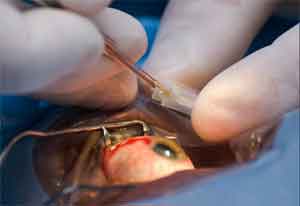- Home
- Editorial
- News
- Practice Guidelines
- Anesthesiology Guidelines
- Cancer Guidelines
- Cardiac Sciences Guidelines
- Critical Care Guidelines
- Dentistry Guidelines
- Dermatology Guidelines
- Diabetes and Endo Guidelines
- Diagnostics Guidelines
- ENT Guidelines
- Featured Practice Guidelines
- Gastroenterology Guidelines
- Geriatrics Guidelines
- Medicine Guidelines
- Nephrology Guidelines
- Neurosciences Guidelines
- Obs and Gynae Guidelines
- Ophthalmology Guidelines
- Orthopaedics Guidelines
- Paediatrics Guidelines
- Psychiatry Guidelines
- Pulmonology Guidelines
- Radiology Guidelines
- Surgery Guidelines
- Urology Guidelines
Take a patient-centred approach to treating cataracts, says NICE

The decision to have cataract surgery should be based on whether the patient thinks surgery is right for them says NICE in new guidance.The guideline provides advice for patients and ophthalmologists to help them decide when surgery is appropriate, taking into account how the condition is affecting a patient’s sight and their quality of life, the benefits, and harms of the operation.
The guideline also says that a decision on whether to offer second-eye cataract surgery should use the same criteria. cataracts are a common eye problem where the lens in your eye becomes cloudy. It can affect one or both eyes. They cause blurry, misty vision and sight loss.
It most commonly affects adults as a result of aging but may also occur as a result of:
- hereditary factors
- trauma
- inflammation
- metabolic or nutritional disorders
- exposure to radiation
- lifestyle factors such as tobacco smoking or a high alcohol intake
Cataracts can be treated by replacing the cloudy lens with an artificial one. This type of surgery is the most common procedure done in the NHS and has a high success rate in improving visual function. The guideline makes recommendations to minimise complications and surgical errors, such as implanting the wrong lens. This includes making sure the correct eye to be operated on is clearly marked and ensuring there is only one lens in the operating theatre.
In adults with early age-related cataracts, non-surgical management may include the prescription of spectacles. Currently, there are no medicines or eye drops that can be used to treat cataracts meaning surgery is the only long-term solution.
The guidance highlights the importance of providing people with cataracts and their family members or carers, information about the condition and treatment options in a format that is easy for them to understand.
This includes details such as what cataract surgery involves, how long it takes and likely recovery time. It says that patients should be made aware of how their vision and quality of like may be affected without surgery.

Disclaimer: This site is primarily intended for healthcare professionals. Any content/information on this website does not replace the advice of medical and/or health professionals and should not be construed as medical/diagnostic advice/endorsement or prescription. Use of this site is subject to our terms of use, privacy policy, advertisement policy. © 2020 Minerva Medical Treatment Pvt Ltd